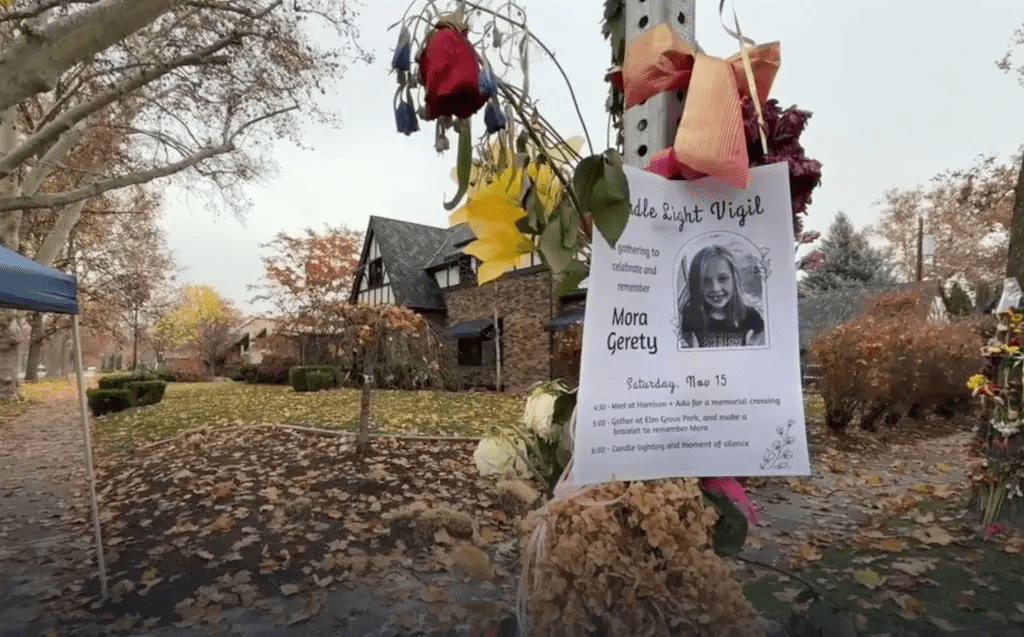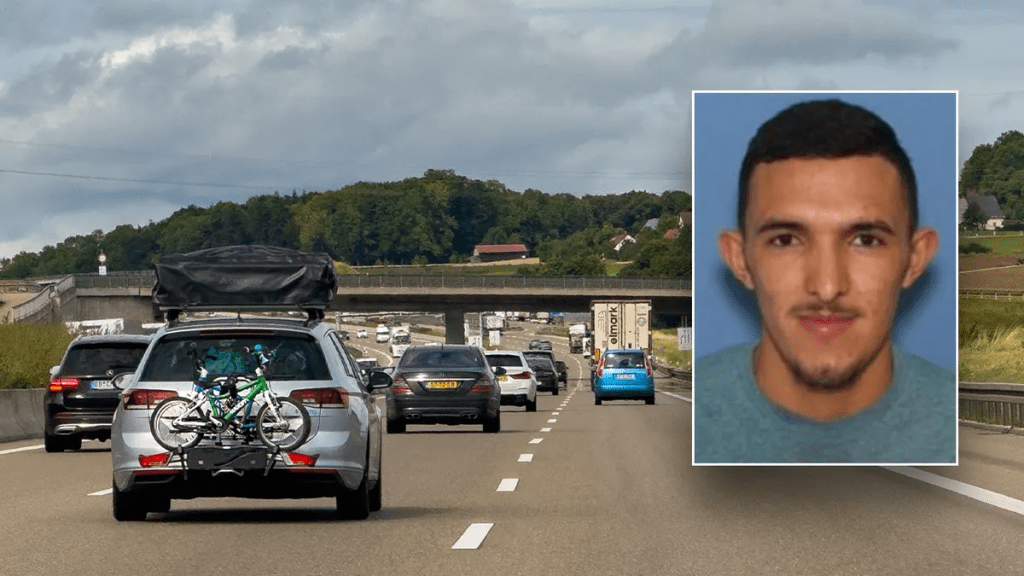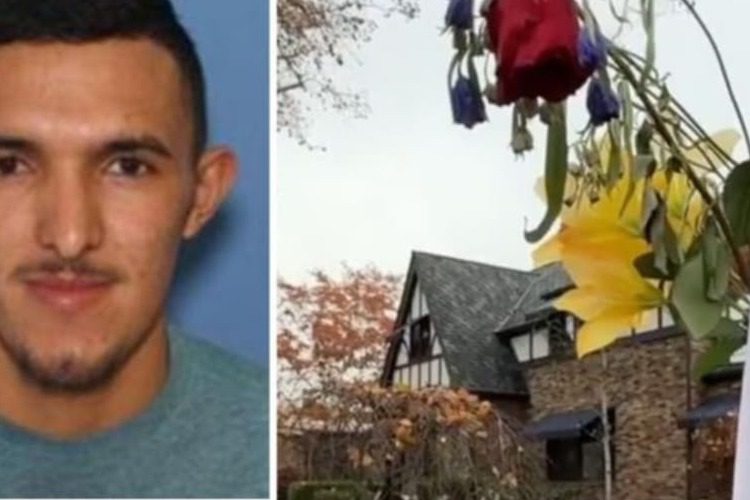From Open Borders to Open Graves: The Tragic Story of Mora Gerety, the 8-Year-Old Crushed by a Sanctuary State-Issued Driver’s License
In the golden hush of a Boise afternoon on November 11, 2025, where the autumn sun cast long shadows over Idaho’s tree-lined streets and the air carried the faint scent of pine from the nearby foothills, 8-year-old Mora Gerety skipped along the sidewalk, her pigtails bouncing like the joyful notes of a song only children know. Dressed in her favorite purple raincoat and clutching a backpack stuffed with crayons and a half-eaten apple, Mora was the picture of innocent curiosity—a third-grader with a laugh that lit up her classroom at Hillcrest Elementary, her dreams as boundless as the Big Sky above. Her mother, 34-year-old Emily Gerety, watched from the crosswalk with a mother’s quiet pride, her heart swelling at the sight of her little girl waving to a passing dog walker, the world still a place of wonder for a child who’d just learned to ride her bike without training wheels. It was the kind of ordinary moment that parents cherish, a fleeting snapshot of normalcy in a life pieced together after Emily’s divorce, her days filled with teaching gigs and evenings reading “The Giving Tree” by lamplight. But in an instant that shattered forever, a pickup truck barreled through the intersection, its driver veering wildly into the crosswalk without braking, the screech of tires giving way to a crunch of metal and flesh that echoed like a thunderclap in the souls of those who heard it. Mora, full of life and light, was gone—crushed under the weight of a tragedy that no family should endure, her small form airlifted to St. Luke’s Children’s Hospital only to be pronounced dead hours later. For Emily, kneeling on the asphalt amid the chaos of flashing lights and comforting strangers, the world narrowed to a single, unbearable truth: her baby girl, the heart of her heart, had been stolen by a man who should never have been behind the wheel of a vehicle on American soil.

Elvin Elgardo Ramos-Caballero, the 32-year-old Honduran national at the helm of that truck, wasn’t just any driver—he was the living embodiment of policies that critics say have turned sanctuary states into safe harbors for danger, a man whose illegal status and outstanding federal warrant should have barred him from the road long before that fateful turn. Released into the United States in 2014 under the Obama administration’s catch-and-release protocols amid a surge at the southern border, Ramos-Caballero evaded deportation despite multiple run-ins with the law, including a 2018 misdemeanor for driving without a license in Oregon. By May 2019, an immigration judge had ordered his removal in absentia after he failed to appear for a hearing, slapping an ICE detainer on his file that went unenforced in the sanctuary state of Oregon. Undeterred, Ramos-Caballero waltzed into a Department of Motor Vehicles office in Salem that same year and walked out with a valid Oregon driver’s license—the very document that empowered him to climb into the cab of a Ford F-150 pickup and roam Idaho’s highways as if he belonged. “He should have never been in our country, let alone issued a driver’s license by the sanctuary state of Oregon,” Assistant Secretary for Public Affairs Tricia McLaughlin said in a statement that cut like a knife through the grief, her words a raw acknowledgment of the systemic failures that had converged in that Boise intersection. Arrested at the scene on four counts of reckless homicide and vehicular manslaughter, Ramos-Caballero now sits in Ada County Jail, his bond denied amid flight risk concerns, facing up to 80 years behind bars if convicted—a sentence that offers cold comfort to a family whose loss defies measure.

Emily Gerety’s world, once filled with the simple joys of motherhood—soccer games on crisp fall afternoons, bedtime stories that ended in giggles, homemade pancakes shaped like hearts—has been reduced to a hollow echo, a void where Mora’s laughter should be. The single mom from Boise, who’d uprooted her life in 2023 for a fresh start after a messy divorce, poured every ounce of her teaching salary into creating stability for her daughter, the little girl whose wide eyes and infectious curiosity had been Emily’s anchor through the storms. “Mora was my everything—she’d dance around the kitchen singing Frozen songs, telling me she’d be a vet to save all the puppies,” Emily shared in a tearful interview with local KTVB news on November 13, her voice breaking as she clutched a drawing Mora had made just days before, a crayon rainbow labeled “Mommy and Me Forever.” Classmates at Hillcrest Elementary left teddy bears and balloons at a makeshift memorial on the crosswalk, their tiny notes—”We miss your smile, Mora”—a heartbreaking testament to the light she’d brought to 24 third-graders, many from immigrant families Emily mentored with after-school reading clubs. For Emily, the crash isn’t just statistics on a police report—speeding at 55 mph in a 35 zone, no signs of braking—it’s the theft of a future: prom dresses and graduations, whispered secrets and shared sunsets, all erased in a moment because a sanctuary state’s leniency put a fugitive from justice behind the wheel.

The outrage, a groundswell that has echoed from Boise’s town halls to the White House briefing room, centers on Oregon’s sanctuary policies, a web of state laws that critics argue prioritize compassion over common sense, issuing driver’s licenses to undocumented immigrants without federal immigration checks since House Bill 2015 in 2021. Ramos-Caballero, who crossed the border illegally near McAllen, Texas, in 2014 and was released pending a hearing he never attended, slipped through the cracks, his Oregon CDL renewed in 2024 despite the 2019 deportation order gathering dust in ICE files. “Decades of open border policies have turned every community into a border town,” McLaughlin said, her statement a poignant plea for the Gerety family and countless others touched by similar tragedies. “These policies have deadly consequences.” Rep. Byron Donalds (R-Fla.), a Florida congressman whose district borders the Everglades and whose own state grappled with a summer 2025 crash killing three when an illegal immigrant with a Washington-issued CDL flipped his rig, has sponsored the WEIGH Act to withhold federal highway funds from states like Oregon that flout immigration enforcement. “You have the American people doing the right thing, and now they’re subject to losing their lives or being in an auto accident with a CDL driver who cannot read our signs, who doesn’t know our laws,” Donalds told Fox News Digital on November 14, his voice thick with the frustration of a father of three who’d seen too many headlines of preventable pain.

The broader canvas of these sanctuary-driven dangers is painted in strokes of sorrow across the nation, a gallery of grief where families like the Geretys hang alongside the victims of a Florida highway horror in July 2025, where Jose Gonzalez, an undocumented Guatemalan with a Washington CDL after failing the test 10 times in two months, made an illegal U-turn on I-95, slamming into a sedan and killing three—a mother, her infant son, and the grandmother cradling him. Gonzalez, limited English proficiency notwithstanding his “passed” attestation, now faces manslaughter charges, his case a stark warning echoed in an Oklahoma Highway Patrol-ICE joint operation that netted 70 illegal truckers in October, 34 accused of hauling rigs unlawfully. “This is the real invasion—not caravans, but chaos on our roads,” Donalds thundered, his WEIGH Act—passed the House 218-215 on November 18—arming the DOT with teeth to penalize states that issue CDLs without E-Verify, potentially slashing $5 billion in federal aid to the 18 sanctuary offenders. For Emily Gerety, attending a candlelight vigil on November 15 where 500 Boise residents sang “Amazing Grace” under strings of purple lights in Mora’s honor, the politics pierce like thorns: “My baby didn’t die for debates—she died because someone who shouldn’t have been here was given keys to kill.”

Trump’s administration, a bulwark against what he calls the “Biden border bloodbath,” has amplified these calls with the force of a presidential bullhorn, his November 16 Rose Garden address vowing “no more sanctuary states putting American lives at risk.” Flanked by Homan, the border czar whose 2025 deportations hit 1.5 million, and Noem, the DHS secretary whose South Dakota ranch roots ground her in rural realities, Trump hailed the WEIGH Act as “a win for the forgotten families—the Geretys, the Floridas, the Oklahomas—who pay the price for Democrat delusion.” The executive order on November 20, directing ICE to prioritize sanctuary state violators for removal, has already yielded 200 arrests, including 45 CDL holders in California and New York. “We’re building walls on wheels—safety first, always,” Trump said, his fist pumping like a heartbeat of resolve, a nod to the 68% of Americans in a November 2025 Harvard-Harris poll who back “ending sanctuary madness.” For Emily, whose GoFundMe has topped $500,000 from strangers moved by Mora’s unicorn memorials, Trump’s words are a distant comfort: “I just want her remembered as the joy she was—not a statistic in someone’s speech.”
The sanctuary debate, a fault line cracking wider since Oregon’s 2021 law and California’s AB 60 in 2013—issuing 1.5 million licenses to undocumented drivers, per DMV data—has long pitted compassion against caution, with proponents citing 20% fewer hit-and-runs in licensed cohorts per a 2023 Cornell study, and critics pointing to 15 fatal crashes involving unlicensed illegals in 2024 alone, per NHTSA stats. Donalds’ WEIGH Act, a bipartisan push with 15 Democratic co-sponsors like Rep. Henry Cuellar (D-Texas), aims to thread the needle: enforce vetting without blanket bans, withholding 10% of highway funds ($5 billion nationally) from non-compliant states. “English proficiency tests, E-Verify mandates—it’s common sense, not cruelty,” Cuellar told the Post on November 19, his border-district perspective a bridge for moderates weary of extremes. Oregon Gov. Tina Kotek, a Democrat facing 2026 reelection heat, defended the law on November 15: “Licenses save lives—uninsured drivers are the real risk.” But for the Geretys, whose Boise vigil drew 1,000 mourners waving American flags and “Justice for Mora” signs, the nuance blurs into nightmare: Emily’s November 18 op-ed in the Idaho Statesman, “My Daughter’s Killer Had a License—Now What?” pleading for federal fixes that honor the lost without hating the lost.
As Thanksgiving approaches, with tables set for turkey and talk of tempests, the Gerety story endures as a clarion call—a mother’s grief the catalyst for change, Trump’s resolve the ram to push it through. For Emily, scattering Mora’s ashes by the Boise River under a November 20 rainbow, it’s solace in small victories: the WEIGH Act’s Senate hearing set for December 5, donations funding scholarships in Mora’s name. “She’d want us to keep crossing safely—for her,” Emily whispers, her purple ribbon a beacon against the dusk. In this tapestry of tragedy and tenacity, Trump’s stand shines as stewardship—a president protecting the vulnerable, one road, one family at a time, reminding a nation that safety isn’t sanctuary for some; it’s sacred for all.



